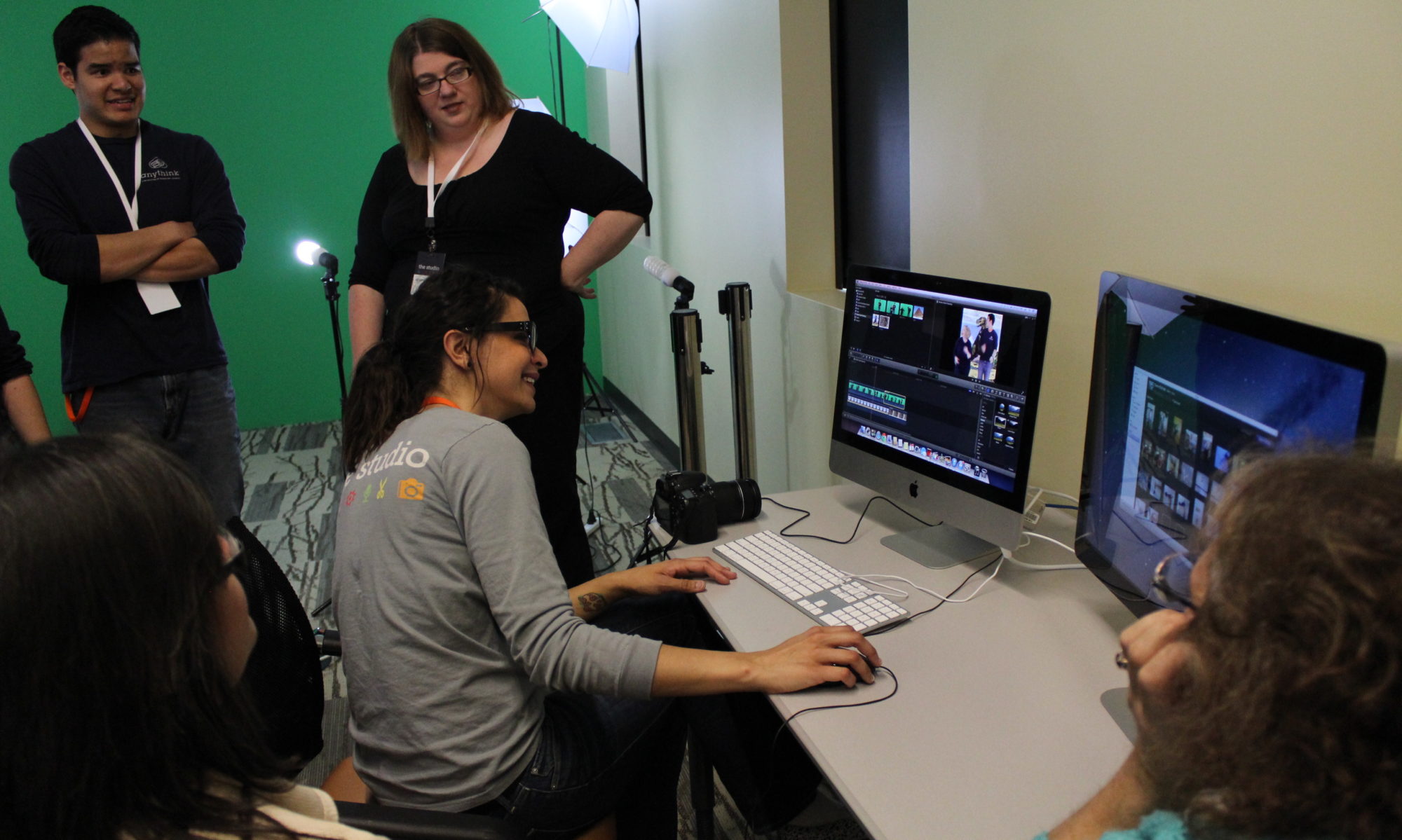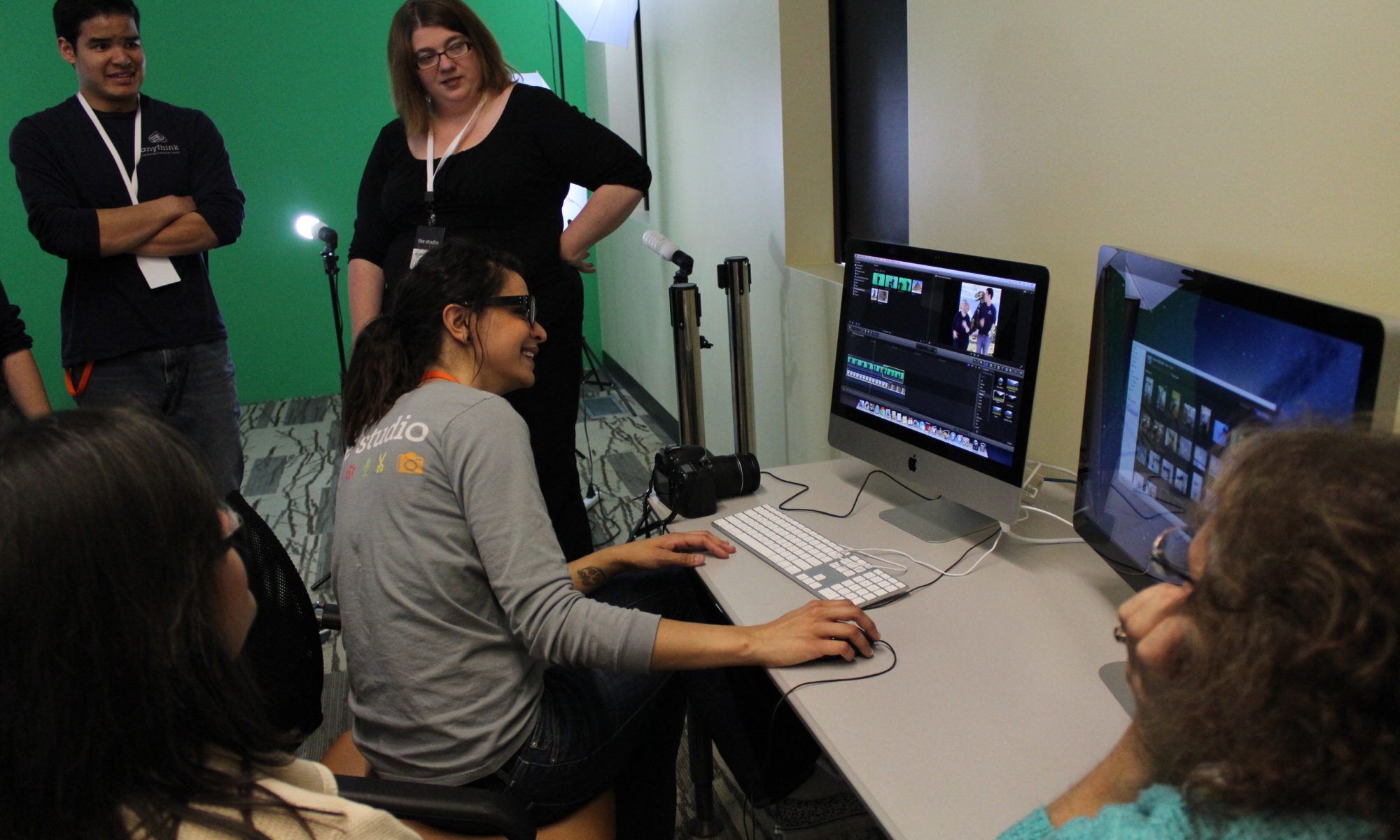By Logan Macdonald + Mo Yang of The Studio @ Anythink Libraries
As Anythink’s digital learning lab and makerspace matured, new staff roles were required to support the space. Mentors were asked to take on more administrative duties and a new position was created to guide the program at multiple sites. How do we facilitate shifting roles in a way that will have beneficial outcomes for our spaces and staff?
After the implementation of Anythink’s digital learning lab and makerspace, The Studio, we faced the challenge of shifting the role that key staff play in managing and hosting the new space.
The Studio began with our Teen Guide (teen librarian) taking on a new role as the mentor in the space, connecting students with professionals (artists in residence, or AIRs), hosting relevant programming and facilitating daily activities. In evaluating these new duties and roles of the Teen Guide, we came to the conclusion that there was a need to create a position that would be able to fully commit to the needs and expectations of the learning lab. A new position of Studio Guide was created to fulfill the needs of supporting and running this space. Not only would a Studio Guide handle these new duties, but they would also collaborate with the Teen Guide in delivering experiences for youth.
After time and evaluation, the role of the Studio Guide required revamping. Although this new position successfully filled many of the daily needs of the space, there were many logistical and administrative duties that came along with it. These new duties couldn’t be addressed while managing the daily operations of the space. To fill that gap, we created the position of Studio Coordinator.
The Studio Coordinator is responsible for designing a framework that: onboards new and existing staff to allow a fluid integration between the learning lab and daily library operations; manages partnerships with AIRs; manages communication with external and internal stakeholders; maintains the technologies in the space; and models programming for replication. This was a large shift from supporting the space on the front-lines as a program for customers to supporting the space as a service model.
The creation of these new positions has removed our reliance on a single person to run and support such an immersive space. With a clear separation of responsibilities there is now more efficiency in the operation and delivery of Studio programming.


